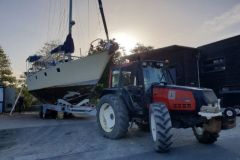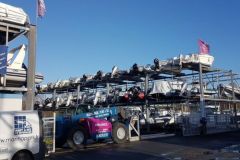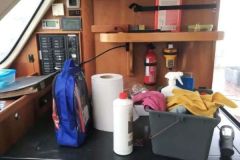The equipment available to boaters is impressive. The toolboxes ( yes, there are always some several ), various fluid cans ( oil, cleaning products ), sails, cushions, life jackets, bails, rockets, etc. The question of storage is therefore essential.
Leave on board the boat
Put end to end, all this junk represents a few cubic meters that must be tidied up, one way or another. If the solution that comes to mind at first is to leave everything on the boat, it is quickly swept away.
Either the boat sails and it is necessary to get rid of what is useless ( antifouling pots, many tools ) and represents weight, or it is winterized and must be emptied of absolutely everything to avoid mold and stains on the fabrics. Not to mention the rodents that are sure to settle in, summer and winter, on a boat left alone.
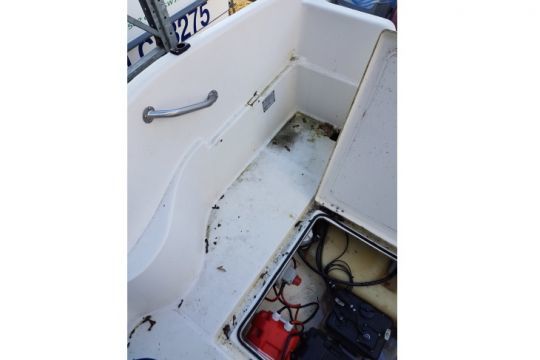
So, one way or another, you will have to unload things from your boat in order to use it.
Store at home
When there is enough space, it can be wise to dedicate a space at home ( in the basement or attic ) to store material that is not in use. The advantage is that the material will be kept warm and dry and will be kept in view to guarantee its safety. The major disadvantage is the space that this material occupies, which will be proportional to the space available to store it. Nature abhors a vacuum, so the more space available, the more it will be occupied.
Then, if the storage is planned in the attic, think about the access to the attic ( mounting a 20 kilo sail on a miller's ladder is not an easy task ) and the load on the floor. The floor of an attic is not always designed - especially if it is initially an attic - to support heavy loads.
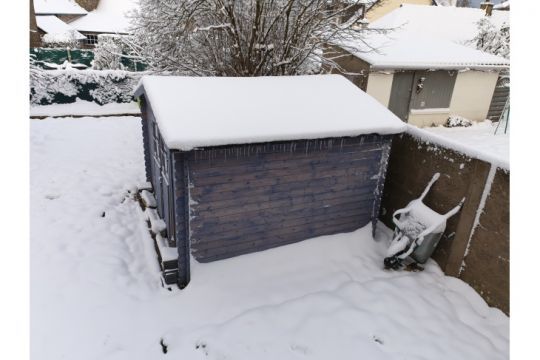
Another domestic alternative, the garden shed. Forget about the temperature and humidity aspect, which will reflect the local climate!
Rent a car garage
Renting a car storage unit allows you to store equipment, if and only if the rental contract allows it. In fact, initially planned - and insured by the owner - for a motor vehicle to be stored there temporarily ( a few days, sometimes a few weeks ), the storage of sails, fabrics, paint cans, in short, the storage of elements that have nothing to do with a car may not be allowed. You will learn this in the event of an accident, most often at your own expense.
Moreover, in such places often located in the basement, you can not avoid rodents to come at least a turn in your equipment. Finally, because they are in the basement, these spaces are sometimes subject to flooding. If it is quick to take out a car in case of an emergency, it will take much longer to take out all your equipment.
Rent a storage room
Renting a space is an option that has all the advantages. The space will be heated, enclosed, waterproof and accessible. All these qualities imply a price and this price will be largely as high as that of a dwelling of equivalent size. It is therefore a feasible solution if you have the possibility of sharing the space with several people ( and then to mutualize the rents ), or pay the full monthly rent.
NB: If you are subject to property tax, this space will be too.
Rent a storage space
There are more and more offers of storage in containers. Often located on the outskirts of large cities, in commercial areas, these companies offer, depending on the surface rented, to provide a closed and covered place, most often accessible 24 hours a day, 7 days a week via secure means.
The storage itself can be done in boxes of different sizes or in decommissioned sea containers, depending on the type of provider.
It is necessary to think about easy access ( by car, by vaneuros ) to the storage area, both at the unloading dock and at the final storage location. It is important to avoid long corridors, stairs, steep slopes and anything that will turn into an unpleasant chore in the long run.
Rent a container on the seaside
Many marine service providers already offer spaces where boaters can store their equipment in second life containers ( whole or half as the case may be ) their equipment. This is the solution offered by some chandleries, dealers or marinas.
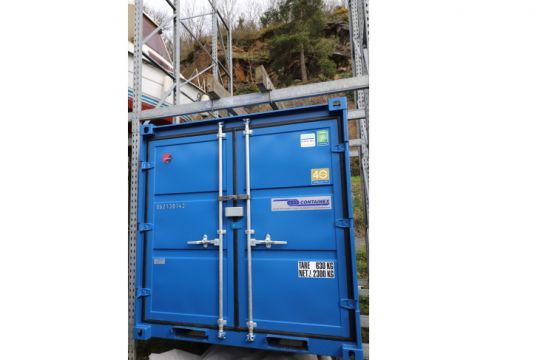
Some dry ports offer to have your boat on a rack and, right next to it, a box to store what you need to store. This is a luxury and easy solution, which means that you never run out of space or forget anything. Tools, paint, accessories and other clothes are always next to the boat.
No dehumidification or stored acids!
To avoid corrosion of the containers, it is generally forbidden to use moisture absorbers. They produce water with a high salt content that is particularly aggressive to the metal of the container.
Similarly, the storage of acids ( of any kind ) is to be avoided unless a retention tank is provided for this purpose.
Finally, beware of batteries which, if improperly stored ( shelf badly wedged, installed in a hurry ) or experience severe temperature shocks can produce explosive gases and sulfuric acid spills.
Think ventilation
Whatever solution you choose, it is important that it is waterproof of course. Without being waterproof. Indeed, you will inevitably store things that are more or less wet. Moisture means mold and mildew. That's why you need a minimum of two ventilation grids ( one low for fresh air intake, one high for air exhaust ). And that you should remember to come regularly ( once a month ), open the doors of the container to take a deep breath of fresh air.
Similarly, ventilation will dissipate any explosive or corrosive fumes that may accumulate. Thus, during the monthly visit of the container, no lit cigarette or lighter, you do not know if such or such gas has concentrated in the confined space of this room.
Think about insurance for what is stored
Do not neglect to insure the stored material. The container ( box, room, container ) will most often be insured as an object by its owner, which is not the case for what you store there.
It is the responsibility of the tenant holding the rental contract to insure against the risks incurred by the stored goods. Theft, fire, flood or voluntary damage, the material will be insured against the damage which would be caused to him as on the damage which it would cause in the event of accident.










